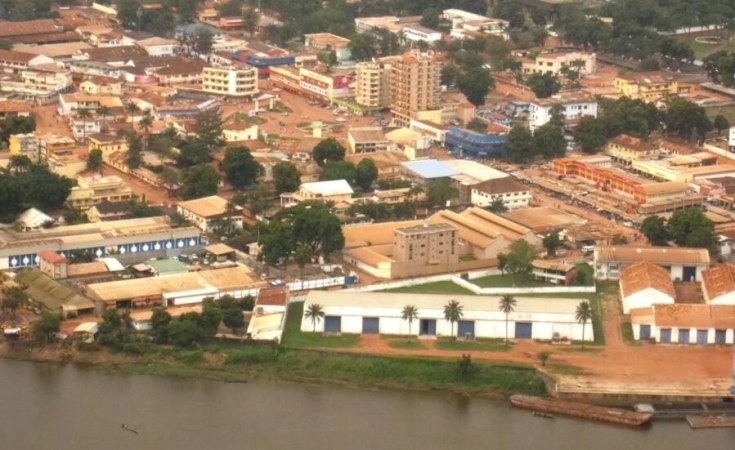State Department — In March 2022, Daniele Darlan, then-president of the Central African Republic's Constitutional Court, faced intense pressure to modify her country's constitution to allow the president to run for a third term in office.
The pressure came from local politicians and Russian diplomats, but she was unwavering in her belief that the constitution could not be undermined.
"The constitution is the fundamental law. It's the text on which all other laws and regulations are based," she told VOA, speaking in French. "If you don't respect the constitution, if you violate it, it sets off a chain reaction of violations. It means that you don't have to respect any law or any rule."
In October 2022 she was removed from her position, clearing the way for President Faustin-Archange Touadéra to remain in power.
International reaction was immediate.
U.S. State Department spokesperson Ned Price said, "judicial independence is a central tenet of democracy," at the time of her removal. "We call on the Central African authorities to ensure the safety and independence of the Constitutional Court."
The court "must be free from interference and political influence from inside and outside," said Yao Agbetse, a U.N. independent expert on the human rights situation in the country.
Darlan said she does not regret her stand even though it cost her dearly.
"As a constitutional judge and president of the Constitutional Court I am a guardian of the constitution," she told VOA in a one-on-one interview at the State Department. "At that moment, I had to make sure that the constitution would be respected. In this sense I only did my job."
Nicknamed the "Woman of Iron," she was one of the recipients of the 2023 International Women of Courage Award presented by the State Department this month.
The Central African Republic has joined a controversial security agreement with the Wagner Group, a Kremlin-controlled paramilitary mercenary company that provides security to the country's president and has become deeply enmeshed in the nation's economy.
Darlan said while people initially had high hopes for the Russian fighters, those hopes have since been dashed.
"The impact, unfortunately, has not been positive," she said. "If at first the population was happy because Wagner was combatting certain armed groups, afterward that was no longer the case."
Human rights advocates accuse Wagner of human rights violations in the country.
"Wagner has committed many abuses against the population and against the armed forces of the Central African Republic. So, little by little, there has been a rejection. At the beginning they were seen as saviors, but now the population has begun to realize they were not what they expected and are demanding they leave," Darlan said.
And it's not just the Central African Republic that is facing threats to the rule of law. Across Africa there have been instances of presidents amending the constitutions to stay in power and soldiers grabbing power at the point of a gun.
As someone who has dedicated her life to the rule of law, Darlan said she is troubled by this trend. She says presidents who cling to power do so out of fear.
"Once you run a country poorly. Once you mismanage the public funds, when you favor your friends and family, you are fearful of leaving power because you are fearful that you won't be protected," she said.
She said she hopes more African leaders will follow the examples of presidents who willing give up power and enjoy a quiet retirement.
"I think the heads of state who lead with good governance do not want to stay in power because they know when they leave, they'll be safe," she said. "There won't be a judicial pursuit, they don't have illicit funds. They are at ease. And they are loved by their population."


